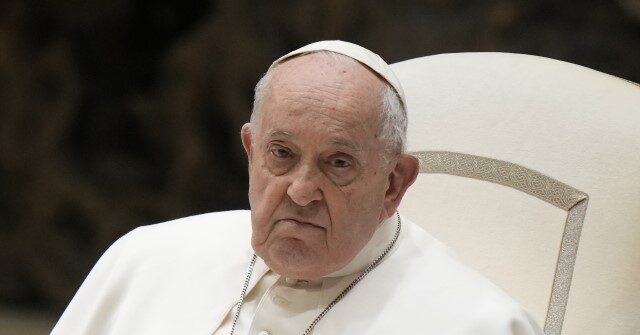
ROME — An unnamed cardinal, after consulting a number of other prelates and summarizing their reflections, has published a sharp critique of the Francis pontificate and a proposal for moving forward.
The 1400-word text, published this week by the Catholic news site The Daily Compass under the title “A profile of the next Pope,” expresses deep concern over the fallout from the nearly 11-year pontificate of Pope Francis.
Among the pontiff’s shortcomings are “an autocratic, at times seemingly vindictive, style of governance; a carelessness in matters of law; an intolerance for even respectful disagreement; and – most seriously – a pattern of ambiguity in matters of faith and morals causing confusion among the faithful,” the text asserts.
The cardinals also underscore “the current pontificate’s heavy dependence on the Society of Jesus [Jesuits], the recent problematic work by the DDF’s [Dicastery for the Doctrine of the Faith] Cardinal Victor Manuel Fernández, and the emergence of a small oligarchy of confidants with excessive influence within the Vatican.”
Because of this ongoing confusion, the Catholic Church today is “more fractured than at any time in her recent history,” the cardinals observe.
According to his critics, the reputation for vindictiveness stems from Francis’ pattern of harsh treatment of conservatives.
As the Catholic Herald stated Friday, “Francis has moved swiftly and ruthlessly against priests, bishops and cardinals opposed to his reforms or critical of his style of governance while protecting allies even when they have [been] accused of heinous crimes of sexual abuse and rape.”
In 2017, historian Henry Sire published a book called The Dictator Pope: The Inside Story of the Francis Papacy under the pen name Marcantonio Colonna.
In it, Sire portrayed Francis as an authoritarian leader who does not brook opposition or criticism. Contrary to his public persona as a jovial man of the people, Sire wrote that Francis has turned out to be “a papal tyrant the like of whom has not been seen for many centuries” and under his administration, “the Vatican is systematically silencing, eliminating and replacing critics of the Pope’s views.”
“When the publicity cameras are off him, Pope Francis turns into a different figure: arrogant, dismissive of people, prodigal of bad language and notorious for furious outbursts of temper which are known to everyone from the cardinals to the chauffeurs,” Sire wrote.
In their text this week, the cardinals note that their document had to be published anonymously because of “the tenor of today’s Roman environment: Candor is not welcome, and its consequences can be unpleasant.”
Nonetheless, they set forth what they see as important tasks for the next pope, which will center on “recovery and reestablishment of truths that have been slowly obscured or lost among many Christians.”
Among these, the cardinals insist on an end to the doctrinal ambiguity that is “neither evangelical nor welcoming.”
“The Church is a community not just of Word and sacrament, but also of creed,” they write, and thus, “doctrinal issues are not burdens imposed by unfeeling ‘doctors of the law’” but are “vital to living a Christian life authentically.”
The text notes a tendency of the present pontiff to elevate “‘compassion’ and emotion at the expense of reason, justice, and truth.”
“For a creedal community, this is both unhealthy and profoundly dangerous,” the cardinals declare.
The text is signed with the pseudonym Demos II, following the 2022 publication of a similar memorandum calling the Francis pontificate a “disaster” and a “catastrophe” while laying out essential tasks for the next successor to Saint Peter.
That text was signed by Demos (“people,” in Greek) though its author was later established to be the late Australian Cardinal George Pell.
Previously it was said: “Roma locuta. Causa finita est” (Rome has spoken, the case is closed). Today it is: “Roma loquitur. Confusio augetur” (Rome speaks and confusion increases), the memo asserted.
